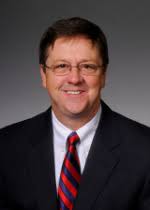USSC upholds state pharmacy law
By submitted, 12/19/20 7:17 AMLITTLE ROCK – The United States Supreme Court upheld an Arkansas law regulating pharmacy benefit managers, which negotiate agreements between health insurance companies and drug stores.
When people get prescriptions from their local drug store, in most cases they don’t pay the full cost. They have insurance, or get help from a government-subsidized program.
Pharmacy benefit managers say that they negotiate discounts for health insurers. That promotes competition and encourages pharmacies to search for the lowest possible wholesale prices.
However, pharmacies told legislators that in many cases they were being reimbursed for less than the wholesale price of the prescriptions, or at such a low rate their profit margins were close to zero. Some pharmacists told of having to refuse to fill prescriptions because they would have lost hundreds of dollars.
The Arkansas legislature has enacted several laws over the years to level the playing field. In 2015 the legislature passed Act 900, which was quickly challenged in court by an association representing the pharmacy benefit managers.
Act 900 was the law that the U.S. Supreme Court upheld unanimously. Other state laws have been enacted since, such as legislation enacted during a 2018 special session that requires pharmacy benefit managers to be licensed by the state Insurance Department.
It also prohibits pharmacy benefits managers from writing gag rules into their contracts with pharmacists. That means pharmacists will be able to advise customers on how to purchase alternative prescriptions that are equally effective but not as expensive.
Legislators had been told that pharmacy benefit managers were reimbursing independent drug stores at a lower rate than they reimbursed pharmacies with which they had a corporate affiliation. That is not allowed under Act 900 of 2015.
Arkansas became the first state to impose comprehensive regulations on pharmacy benefit managers, but many other states have followed suit and 45 states joined the Arkansas side in the lawsuit before the Supreme Court. The District of Columbia and the federal government also joined Arkansas.
Organizations of pharmacists and physicians filed legal briefs in support of the Arkansas law. A national trucking company and the U.S. Chamber of Commerce filed legal briefs in support of the pharmacy benefit managers.
The latest piece of legislation regulating the industry is Act 994 of 2019, which sets out procedures for updating “maximum allowable cost lists.”
The lists are the basis of reimbursements that are paid to local pharmacies. National averages for generics and wholesale drugs are factored in, and the process should be more transparent for everyone. One result should be the elimination of a practice that hurt local pharmacists, which was the retroactive collection of charges by benefit managers.
The Supreme Court ruling was celebrated by Arkansas pharmacists. Every sector in the industry is preparing for more changes in pricing and regulation, simply because prescription drugs account for such a large portion of the overall costs of health care.
For example, during legislative hearings a representative of pharmacy benefits managers told senators that the costs of drugs makes up 22 percent of the cost of health insurance premiums.




